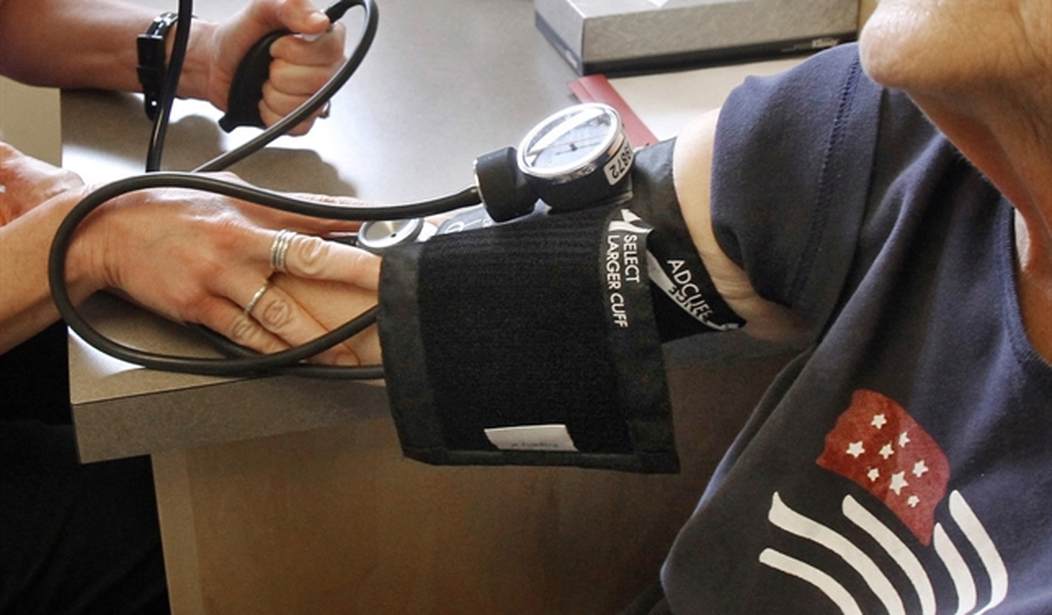WASHINGTON -- Milton Friedman was not only a brilliant economist -- a Nobel laureate, in fact -- he was also a gifted writer. In his 1962 book "Capitalism and Freedom," he presciently explained how health care costs were going to leap out of control over the next decades. Sure enough, they did. They multiplied from roughly $1 of every $20 being spent on health care in the 1950s to roughly $1 of every $5 being spent on health care today.
Now we spend more than $3.5 trillion on health care annually, that is to say about $10,000 a person. The figure is projected to be $5.7 trillion by 2026, though as Friedman predicted, when the money is available, we always spend more -- much more. Predictions of how many people will show up for free health care always miss the mark by a lot.
If you leave out China, Japan and Germany, today America spends more money on health care than all the other nations on Earth spend on everything, as Hunt Lawrence and Dan Flynn have been saying in their thoughtful analysis of American health care. It is getting worse. Something must be done.
The demand for health care is, as Friedman said, "elastic." If money and time for it are available, patients will keep going to the doctor. They will go to the doctor in unimaginable numbers, or, shall we say, (SET ITAL) unbudgetable (END ITAL) numbers. This is the history of modern health care. As government makes available money to pay our health care bills, we spend the money, for it costs us very little, only time spent with the quacks.
Lawrence and Flynn say that America "cannot afford to pay a fifth or more of the gross domestic product on one need with so many other needs (food, shelter, transportation, etc.) always looming."
America is facing much more than a health care crisis. It is facing a federal deficit crisis of huge proportions. For now, we conservatives say that the deficit crisis can be solved, or at least alleviated by tax cuts. We believe the tax cuts will pay for themselves, but what can be resorted to to solve our health care crisis?
Recommended
Surprisingly, it could come from Silicon Valley. Earlier this year, Amazon -- CEO Jeff Bezos' tool for destroying such venerable institutions as Borders and Toys R Us -- announced a partnership with JPMorgan Chase and Berkshire Hathaway to provide health care at a more reasonable cost to their collective 1.2 million employees. In his announcement of the partnership, Bezos declared, "Hard as it might be, reducing healthcare's burden on the economy while improving outcomes for employees and their families would be worth the effort." His work with JPMorgan Chase and Berkshire Hathaway should be watched carefully. It may be his model for Amazon's leap into health care.
Conventional approaches to the federal deficit rely on taxes. Whether we raise them, as the Democrats prescribe, or lower them, as the Republicans prescribe, both approaches are pretty conventional compared with what Bezos seems to be about to prescribe for health care.
The health care sector of the economy is bureaucratized and bloated. What Amazon plans to do on a small scale with JPMorgan Chase and Berkshire Hathaway it can do with the wider audience that it already has, Amazon Prime. There are an estimated 90 million American customers paying $99 annually for Amazon Prime. With this base, Amazon could easily challenge old-line insurers. And what could Amazon deliver to these customers? Lawrence and Flynn write, "Through telemedicine, digital record-keeping through its cloud, expanding its coverage for its employees to its customers ... Amazon might streamline healthcare as it has streamlined so much else."
They speculate that if customers were to save, say, $3,000 per year on health care expenses, the federal deficit would decrease by nearly $500 billion per year, thus allowing more tax cuts, spending on infrastructure and other expenditures. Health care's bite out of the federal budget would perhaps drop to that of every other modern industrial country. Health care is the one sector of the economy where Bezos' economics of destruction would be welcome.

























Join the conversation as a VIP Member